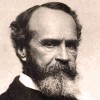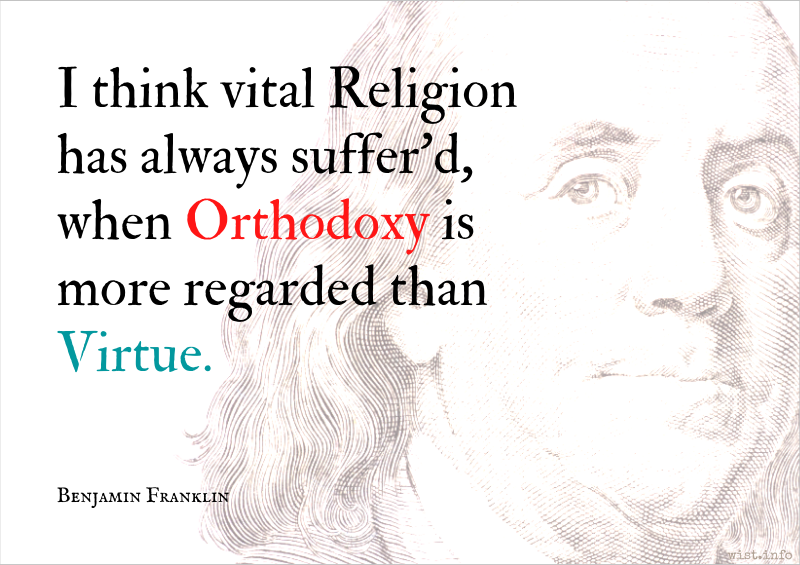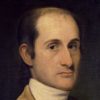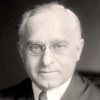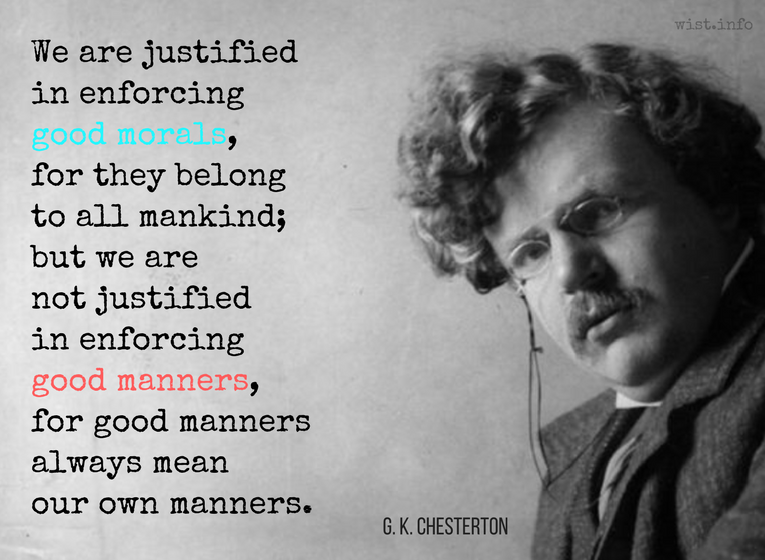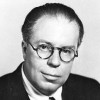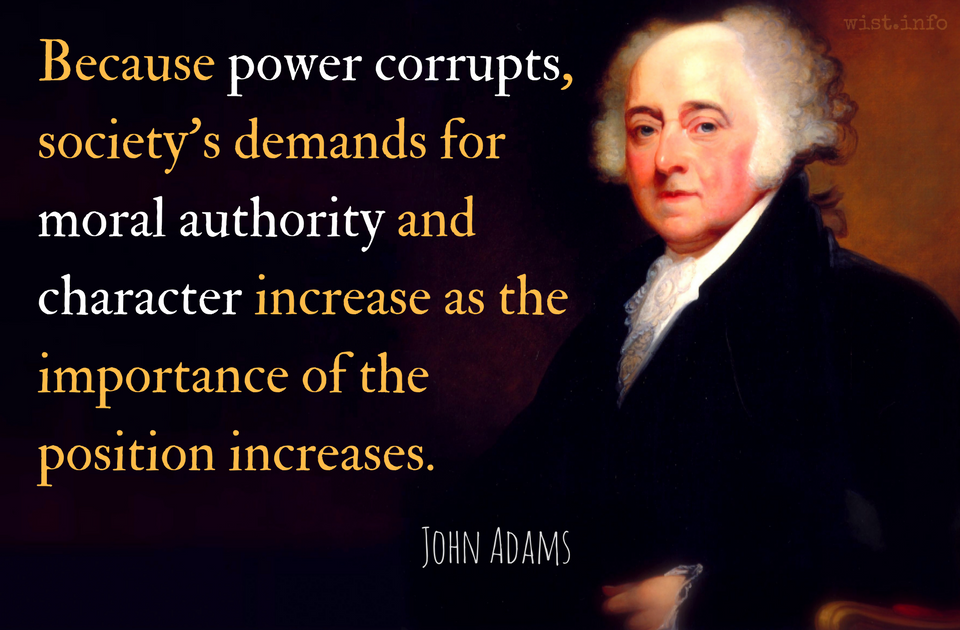Quotations about:
morality
Note not all quotations have been tagged, so Search may find additional quotes on this topic.
My code of life and conduct is simply this: work hard, play to the allowable limit, disregard equally the good and bad opinion of others, never do a friend a dirty trick, eat and drink what you feel like when you feel like, never grow indignant over anything, trust to tobacco for calm and serenity, bathe twice a day, modify the aesthetic philosophy of Croce but slightly with that of Santayana and achieve fro one’s self a pragmatic sufficiency in the beauty of the aesthetic surface of life, learn to play at least one musical instrument and then play it only in private, never allow one’s self even a passing thought of death, never contradict anyone or seek to prove anything to anyone unless one gets paid for it in cold, hard coin, live the moment to the utmost of its possibilities, treat one’s enemies with polite inconsideration, avoid persons who are chronically in need, and be satisfied with life always but never with one’s self. An infinite belief in the possibilities of one’s self with a coincidental critical assessment and derogation of one’s achievements, self-respect combined with a measure of self-surgery, aristocracy of mind combined with democracy of heart, forthrightness with modesty or at least good manners, dignity with a quiet laugh, honor and honesty and decency: these are the greatest qualities that men can hope to attain. And as one man, my hope is to attain them.
George Jean Nathan (1892-1958) American editor and critic
“Self-Revelation,” Testament of a Critic (1931)
(Source)
I had been religiously educated as a Presbyterian; and tho’ some of the Dogmas of that Persuasion, such as the Eternal Decrees of God, Election, Reprobation, &c. appear’d to me unintelligible, others doubtful, & I early absented myself from the Public Assemblies of the Sect, Sunday being my Studying-Day, I never was without some religious Principles; I never doubted, for instance, the Existence of the Deity, that he made the World, & govern’d it by his Providence; that the most acceptable Service of God was the doing Good to Man; that our Souls are immortal; and that all Crime will be punished & Virtue rewarded either here or hereafter; these I esteem’d the Essentials of every Religion, and being to be found in all the Religions we had in our Country I respected them all, tho’ with different degrees of Respect as I found them more or less mix’d with other Articles which without any Tendency to inspire, promote or confirm Morality, serv’d principally to divide us & make us unfriendly to one another.
Benjamin Franklin (1706-1790) American statesman, scientist, philosopher, aphorist
Autobiography, Part 2 (1785)
(Source)
If, as I suggested before, the ability to tell right from wrong should turn out to have anything to do with the ability to think, then we must be able to “demand” its exercise from every sane person, no matter how erudite or ignorant, intelligent or stupid, he may happen to be.
Hannah Arendt (1906-1975) German-American philosopher, political theorist
The Life of the Mind, Vol. 1 “Thinking,” Introduction (1977)
(Source)
We are all ready to be savage in some cause. The difference between a good man and a bad one is the choice of the cause.
William James (1842-1910) American psychologist and philosopher
Letter to E. L. Godkin (24 Dec 1895)
(Source)
For behind the unwillingness to judge lurks the suspicion that no one is a free agent, and hence the doubt that anyone is responsible or could be expected to answer for what he has done. The moment moral issues are raised, even in passing, he who raises them will be confronted with this frightful lack of self-confidence and hence of pride, and also with a kind of mock-modesty that in saying, Who am I to judge? actually means We’re all alike, equally bad, and those who try, or pretend that they try, to remain halfway decent are either saints or hypocrites, and in either case should leave us alone.
Hannah Arendt (1906-1975) German-American philosopher, political theorist
“Personal Responsibility Under Dictatorship” (1964)
(Source)
For herein may be seen noble chivalry, courtesy, humanity, friendliness, hardiness, love, friendship, cowardice, murder, hate, virtue, and sin. Do after the good and leave the evil, and it shall bring you to good fame and renown.
Another point of disagreement is not factual but involves the ethical/moral principle […] sometimes referred to as the “politics of moral witness.” Generally associated with the religious left, secular leftists implicitly invoke it when they reject LEV on the grounds that “a lesser of two evils is still evil.” Leaving aside the obvious rejoinder that this is exactly the point of lesser evil voting — i.e. to do less evil, what needs to be challenged is the assumption that voting should be seen a form of individual self-expression rather than as an act to be judged on its likely consequences. […] The basic moral principle at stake is simple: not only must we take responsibility for our actions, but the consequences of our actions for others are a far more important consideration than feeling good about ourselves.
Noam Chomsky (b. 1928) American linguist and activist
“An Eight Point Brief for LEV (Lesser Evil Voting)” (15 Jun 2016) [with John Halle]
(Source)
What is betrayal? They talk of a man betraying his country, his friends, his sweetheart. There must be a moral bond first. All a man can betray is his conscience.
Joseph Conrad (1857-1924) Polish-English novelist [b. Teodor Josef Konrad Korzeniowski]
Under Western Eyes, Part 1, ch. 2 (1911)
(Source)
I think vital Religion has always suffer’d, when Orthodoxy is more regarded than Virtue. And the Scripture assures me, that at the last Day, we shall not be examin’d what we thought, but what we did; and our Recommendation will not be that we said Lord, Lord, but that we did GOOD to our Fellow Creatures.
Benjamin Franklin (1706-1790) American statesman, scientist, philosopher, aphorist
Letter to Josiah and Abiah Franklin (13 Apr 1738)
(Source)
His parents. Franklin cites Matt. 26 in the letter, but it should be Matt. 25:31-46.
Man, in his present state, appears to be a degraded creature; his best gold is mixed with dross, and his best motives are very far from being pure and free from earth and impurity.
John Jay (1745-1829) American statesman, diplomat, abolitionist, politician, Chief Justice (1789-1795)
Letter to Lindley Murray (22 Aug 1774)
(Source)
Yet a personal God can become a grave liability. He can be a mere idol carved in our own image, a projection of our limited needs. fears and desires. We can assume that he loves what we love and hates what we hate, endorsing our prejudices instead of compelling us to transcend them. … Instead of pulling us beyond our limitations, “he” can encourage us to remain complacently within them; “he” can make us a cruel, callous, self-satisfied and partial as “he” seems to be. Instead of inspiring the compassion that should characterize all advanced religion, “he” can encourage us to judge, condemn and marginalize.
Karen Armstrong (b. 1944) British author, comparative religion scholar
A History of God, ch. 7 “The God of the Mystics” (1993)
(Source)
The moral is that it is probably better not to sin at all, but if
some kind of sin you must be pursuing,Well, remember to do it by doing rather than by not doing.
Ogden Nash (1902-1971) American poet
“Portrait of the Artist as a Prematurely Old Man” (1959)
(Source)
Modern politics cannot be a matter of genuine moral consensus. And it is not. Modern politics is civil war carried on by other means.
Alasdair MacIntyre (b. 1929) Scottish philosopher
After Virtue: A Study of Moral Theory, ch. 17 (1981)
(Source)
For the Communists offer one precious, fatal boon: they take away the sense of sin. It may or may not be debatable whether a man can live without God; but, if it were possible, we should pass a law forbidding a man to live without the sense of sin.
Murray Kempton (1917-1997) American journalist.
Part of Our Time: Some Ruins & Monuments of the Thirties, ch. 1 “The Sheltered Life” (1955)
(Source)
When the accumulation of wealth is no longer of high social importance, there will be great changes in the code of morals. We shall be able to rid ourselves of many of the pseudo-moral principles which have hag-ridden us for two hundred years, by which we have exalted some of the most distasteful of human qualities into the position of the highest virtues. We shall be able to afford to dare to assess the money-motive at its true value. The love of money as a possession — as distinguished from the love of money as a means to the enjoyment and realities of life — will be recognized for what it is, a somewhat disgusting morbidity, one of those semi-criminal, semi-pathological propensities which one hands over with a shudder to the specialists in mental disease.
John Maynard Keynes (1883-1946) English economist
“Economic Possibilities for our Grandchildren,” Nation and Athenaeum (1930-10-11)
(Source)
Originally a society talk in 1920, expanded to a lecture given in Madrid (1930-06). Reprinted in Essays in Persuasion, Part 5, ch. 2 (1931).
An easygoing vice, I hold,
Is better than an angry virtue.[J’aime mieux un vice commode,
Qu’une fatigante vertu.]Molière (1622-1673) French playwright, actor [stage name for Jean-Baptiste Poquelin]
Amphitryon, Act 1, sc. 4, l. 681-2 [Mercury] (1666) [tr. Wilbur (2010)]
(Source)
Alt. trans.:
- "I prefer an accommodating vice / To an obstinate virtue."
- "I prefer a convenient vice, to a fatiguing virtune." [tr. Waller (1903)]
- Original French.
Men cannot be made good by the state, but they can easily be made bad. Morality depends on liberty.
John Dalberg, Lord Acton (1834-1902) British historian
Note #10, in George Watson, Lord Acton’s History of Liberty (1994)
(Source)
For the propaganda of totalitarian movements which precede and accompany totalitarian regimes is invariably as frank as it is mendacious, and would-be totalitarian rulers usually start their careers by boasting of their past crimes and carefully outlining their future ones. The Nazis were “convinced that evil-doing in our time has a morbid force of attraction,” Bolshevik assurances inside and outside Russia that they do not recognize ordinary moral standards have become a mainstay of Communist propaganda, and experience has proven time and again that the propaganda value of evil deeds and general contempt for moral standards is independent of mere self-interest, supposedly the most powerful psychological factor in politics.
Hannah Arendt (1906-1975) German-American philosopher, political theorist
The Origins of Totalitarianism, Part 3, ch. 10 “A Classless Society,” sec. 1 (1951)
(Source)
Against all appearances the nature of things works for truth and right forever.
Ralph Waldo Emerson (1803-1882) American essayist, lecturer, poet
“Worship,” The Conduct of Life, ch. 6 (1860)
(Source)
Whenever racial discrimination exists it is a tragic expression of man’s spiritual degeneracy and moral bankruptcy. Therefore, it must be removed not merely because it is diplomatically expedient, but because it is morally compelling.
Martin Luther King, Jr. (1929-1968) American clergyman, civil rights leader, social activist, preacher
“The Rising Tide of Racial Consciousness,” Speech, National Urban League, New York (6 Sep 1960)
(Source)
Don’t flang him off the bluff, boys. Tain’t christian.
Nations are most commonly saved by the worst men in them. The virtuous are too scrupulous to go to the lengths which are necessary to rouse the people against their tyrants.
Horace Walpole (1717-1797) English novelist, letter writer
Memoirs of the Reign of King George III, Vol. 1, ch. 12 (1859)
(Source)
Variants:
- "The adventurer's career suggests the reflection that nations are usually saved by their worse men, since the virtuous are too scrupulous to go to the lengths needed to rouse the people against their tyrants." (Source)
- "The virtuous are too scrupulous to go to the lengths that are necessary to rouse the people against their tyrants."
- Modern paraphrase: "No great country was ever saved by good men because good men will not go to the lengths necessary to save it."
- Modern paraphrase: "No great country was ever saved by good men, because good men may not go to the lengths that may be necessary."
If a political party does not have its foundation in the determination to advance a cause that is right and that is moral, then it is not a political party; it is merely a conspiracy to seize power.
Dwight David Eisenhower (1890-1969) American general, US President (1953-61)
Speech, Fourth Annual Republican Women’s National Conference, Washington, DC (6 Mar 1956)
(Source)
An opinion, right or wrong, can never constitute a moral offense, nor be in itself a moral obligation. It may be mistaken; it may involve an absurdity, or a contradiction. It is a truth; or it is an error: it can never be a crime or a virtue.
‘Tis rare, when riches cannot taint the mind.
[Ardua res haec est opibus non tradere mores.]
Martial (AD c.39-c.103) Spanish Roman poet, satirist, epigrammatist [Marcus Valerius Martialis]
Epigrams [Epigrammata], Book 11, epigram 5 (11.5.3) (AD 96) [tr. Killigrew (1695)]
(Source)
(Source (Latin)). Alternate translations:
Wealth to withstand, how arduous is the skill!
[tr. Elphinston (1782), Appendix to Book 1, ep. 12]
It is an arduous task to preserve morality from the corruption of riches.
[tr. Bohn's Classical (1859)]
'Tis a hard task not to surrender morality for riches.
[ed. Harbottle (1897)]
'Tis a hard task this, not to sacrifice manners to wealth.
[tr. Ker (1919)]
Riches sap morals.
[tr. Francis & Tatum (1924)]
It is a hard thing not to sacrifice morals to wealth.
[tr. Shackleton Bailey (1993)]
It is a hard business, not to compromise morals for riches.
[tr. Nisbet (2015)]
Moral passion without entertainment is propaganda, and entertainment without moral passion is television.
That which we call sin in others, is experiment for us.
Ralph Waldo Emerson (1803-1882) American essayist, lecturer, poet
“Experience,” Essays: Second Series (1844)
(Source)
Nature, as we know her, is no saint.
Ralph Waldo Emerson (1803-1882) American essayist, lecturer, poet
“Experience,” Essays: Second Series (1844)
(Source)
A good tree cannot bring forth evil fruit, neither can a corrupt tree bring forth good fruit. Every tree that bringeth not forth good fruit is hewn down, and cast into the fire. Wherefore by their fruits ye shall know them.
The Bible (The New Testament) (AD 1st - 2nd C) Christian sacred scripture
Matthew 7:18–20 (KJV)
Alt. trans.:
- "A healthy tree cannot bear bad fruit, and a poor tree cannot bear good fruit. And any tree that does not bear good fruit is cut down and thrown in the fire. So then, you will know the false prophets by what they do." (GNT)
- "A good tree cannot bear bad fruit, nor can a bad tree bear good fruit. Every tree that does not bear good fruit is cut down and thrown into the fire. Thus you will know them by their fruits." (NRSV)
We are justified in enforcing good morals, for they belong to all mankind; but we are not justified in enforcing good manners, for good manners always mean our own manners.
Gilbert Keith Chesterton (1874-1936) English journalist and writer
All Things Considered, “Limericks and Counsels of Perfection” (1908)
(Source)
A man’s action is only a picture-book of his creed.
Ralph Waldo Emerson (1803-1882) American essayist, lecturer, poet
“Poetry and Imagination,” Letters and Social Aims (1876)
(Source)
Tolerance is not a moral absolute; it is a peace treaty.
Yonatan Zunger (b. 1977) American essayist, software engineer, physicist, ethicist
“Tolerance is not a moral precept” (2 Jun 2017)
(Source)
For action is indeed the sole medium of expression for ethics. We continually forget that the sphere of morals is the sphere of action, that speculation in regard to morality is but observation and must remain in the sphere of intellectual comment, that a situation does not really become moral until we are confronted with the question of what shall be done in a concrete case, and are obliged to act upon our theory.
Jane Addams (1860-1935) American reformer, suffragist, philosopher, author
Democracy and Social Ethics, ch. 7 “Political Reform” (1902)
(Source)
In self-examination, take no account of yourself by your thoughts and resolutions in the days of religion and solemnity; examine how it is with you in the days of ordinary conversation and in the circumstances of secular employment.
Jeremy Taylor (1613-1667) English cleric and author
(Attributed)
(Source)
Quoted in The Friends' Intelligencer (24 Jun 1882).
The way to avoid evil is not by maiming our passions, but by compelling them to yield their vigor to our moral nature. Thus they become, as in the ancient fable, the harnessed steeds which bear the chariot of the sun.
To ensure moral salvation, it is primarily necessary to depend on oneself, because in the moment of peril we are alone. And strength is not to be acquired instantaneously. He who knows that he will have to fight, prepares himself for boxing and dueling by strength and skill; he does not sit still with folded hands.
Blessed is he who has never been tempted; for he knows not the frailty of his rectitude.
Christopher Morley (1890-1957) American journalist, novelist, essayist, poet
Inward Ho!, ch. 1 (1923)
(Source)
No man ever stood the lower in my estimation for having a patch in his clothes; yet I am sure that there is greater anxiety, commonly, to have fashionable, or at least clean and unpatched clothes, than to have a sound conscience.
We repudiate all morality which proceeds from supernatural ideas or ideas which are outside the class conception. In our opinion, morality is entirely subordinate to the interests of the class war; everything is moral which is necessary for the annihilation of the old exploiting social order and for uniting the proletariat. Our morality consists solely in close discipline and conscious warfare against the exploiters.
Vladimir Ilich Lenin (1870-1924) Russian politician, revolutionary, political theorist [b. Vladimir Ilich Ulyamov]
(Attributed)
(Source)
Quoted in René Fülöp-Miller, Lenin and Gandhi (1927).
Man is man because he is free to operate within the framework of his destiny. He is free to deliberate, to make decisions, and to choose between alternatives. He is distinguished from animals by his freedom to do evil or to do good and to walk the high road of beauty or tread the low road of ugly degeneracy.
Nothing could be more grotesquely unjust than a code of morals, reinforced by laws, which relieves men from responsibility for irregular sexual acts, and for the same acts drives women to abortion, infanticide, prostitution, and self-destruction.
Suzanne La Follette (1893-1983) American journalist, author, feminist
Concerning Women (1926)
(Source)
No facts are to me sacred; none are profane; I simply experiment, an endless seeker, with no Past at my back.
Ralph Waldo Emerson (1803-1882) American essayist, lecturer, poet
“Circles,” Essays: First Series (1841)
(Source)
When all is said and all is done,
When all is lost or all is won —
In spite of musty theory,
Of purblind faith and vain conceit,
Of barren creed and sophistry:
In spite of all — success, defeat,
The Judge accords to worst and best,
Impartially, this final test:
What hast thou done with brawn and brain,
To help the world to lose or gain
An onward step? Canst reckon one
Unselfish, brave or noble deed,
That thou — nor counting cost! Hast done
To help a brother’s crying need?
Not what professed nor what believed —
But what good thing hast thou achieved?
Character is higher than intellect.
Ralph Waldo Emerson (1803-1882) American essayist, lecturer, poet
“The American Scholar,” sec. 3, speech, Phi Beta Kappa Society, Cambridge (1837-08-31)
(Source)
We do not need more intellectual power, we need more moral power. We do not need more knowledge, we need more character. We do not need more government, we need more culture. We do not need more law, we need more religion. We do not need more of the things that are seen, we need more of the things that are unseen. If the foundation be firm, the foundation will stand.





